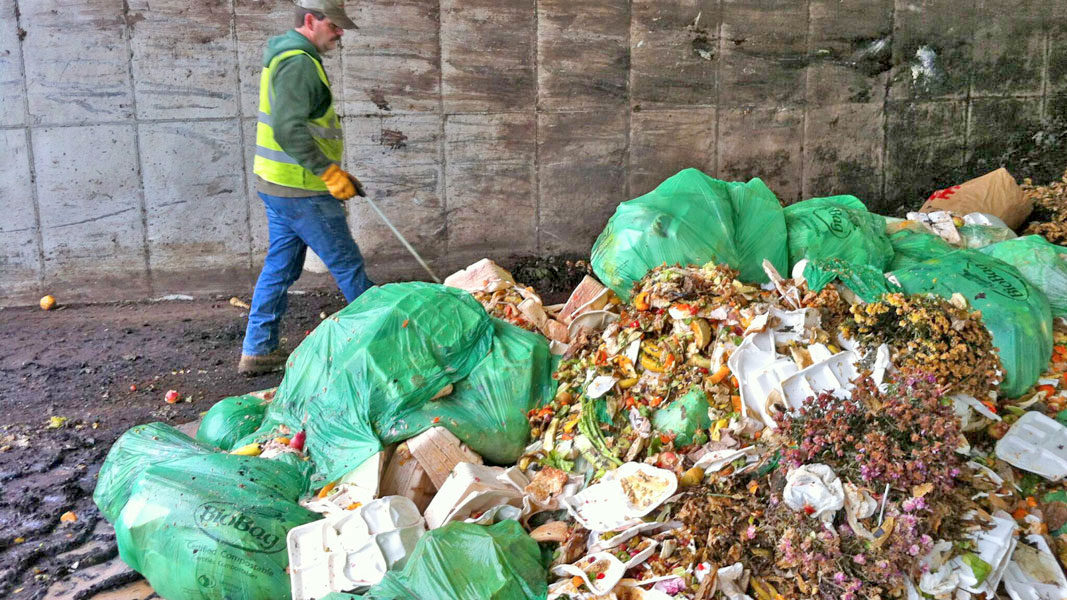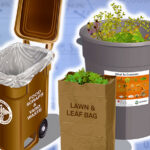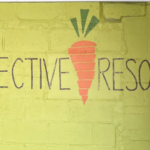Top: A new load of source separated food waste is inspected at the Organics Recycling Facility. Photo courtesy of Chittenden Solid Waste District
The Chittenden Solid Waste District (CSWD), which services Burlington, Vermont and surrounding jurisdictions in Chittenden County, adopted an Organics Recycling Facility Contamination Policy that went into effect on July 1, 2024. “This policy provides a procedure for inspecting incoming loads delivered to the CSWD Organics Recycling Facility (ORF) for contamination and the corrective actions to be taken with the intent to: 1) Remediate contamination of incoming loads; 2) Improve communications between organics haulers, their customers, state programs/personnel, ORF personnel, and CSWD staff regarding material specification requirements; 3) Maximize ORF operational efficiency; and 4) Minimize worker exposure to potentially harmful materials and ensure the safe and optimal operation of the ORF processing equipment,” states the policy. The ORF, home of Green Mountain Compost, accepts all food waste, soiled paper, certified and clearly labeled compostable bags used for lining food scrap containers, yard trimmings, wood, and manure. The ORF receives about 4,500 tons/year of food waste and about 11,250 tons/year of yard trimmings and wood that are first composted in aerated static piles and then in turned windrows.
The contamination policy has three tiers, with the fines reflecting the amount and/or types of contamination; no fine is assessed for loads with <5% contamination by volume:
- Contaminated Load: Material received at the ORF that contains >5% contamination and <10% by volume results in a minimum fine of $75/ton. Contaminants are picked out by ORF staff in most cases.
- Excessively Contaminated Load: Material received at the ORF that contains >10% contamination by volume results in a minimum fine of $150/ton. These loads are typically put into a CSWD-rolloff container and taken to the transfer station for landfill disposal if the contamination is too difficult to pick out.
- Incidental Contamination: Material received at the ORF that contains particularly problematic materials results in a fine of $50/load even if the load itself has <5% contamination. Incidental contamination includes one or more 10-gallon or larger plastic bags containing trash; glass items exceeding 3 items/ton; hazardous waste or household hazardous waste; medical or human waste; personal hygiene products including diapers; and other materials that the ORF is unable to process.
The fine for excessively contaminated yard trimmings, defined as >10% by volume, is a minimum of $200/ton. For incoming loads deemed to be contaminated, CSWD staff will complete a contaminated load report and send the hauler a digital copy within two business days. Any fine outlined on the contaminated load report will be billed to the hauler who pays the penalty, including late fees and penalties for non-payment of fines. “While we don’t have great numbers to prove it, we have definitely seen a big improvement overall since enacting the policy and issuing fines,” notes Dan Goossen, CSWD’s Director of Organics. “Our site has far less contamination in the mix and we’ve seen great responses from a few key haulers and generators who were unwilling to make changes prior to enacting the new policy.”










